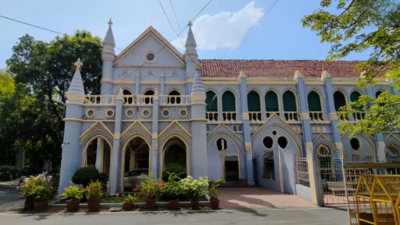The Madhya Pradesh High Court recently quashed an FIR registered against Dr. Ajai Lall, a Christian missionary and office-bearer of Aadhaarshila Sansthan, in a case related to the alleged trafficking of children given for adoption 15 years ago [Dr. Ajai Lall v. State of Madhya Pradesh & Others].
The Court expressed concern over the involvement of the National Commission for Protection of Child Rights (NCPCR), which had instigated the investigation despite there being no complaints from the children or their adoptive parents.
Justice Sanjay Dwivedi noted that the adoption process had followed the legal procedure and had been approved by the Family Court in Damoh. He emphasized that the adoption had been properly scrutinized by the Adoption Committee, which confirmed that the children were legally free for adoption. The Court ruled that once the adoption was validated by the competent court, the NCPCR’s doubts could not justify a re-investigation.
“Once the competent court passed the adoption order after reviewing all aspects, including the child’s status, the NCPCR’s actions based on mere doubts cannot be justified,” the Court stated.
The Court also observed that the prosecution of Dr. Lall seemed to be malicious, with the intent of tarnishing his reputation. The FIR had been filed under charges of trafficking (Section 370 IPC) and violations under the Juvenile Justice (Care and Protection of Children) Act, 2015, based on claims that children were still found at Bal Bhawan (an orphanage operated by Lall) after their adoption. However, Lall argued that the children were actually residing in the Central India Academy hostel, an institution associated with the Sansthan.
The Court also criticized NCPCR Chairperson Priyank Kanoongo for using social media to pressure statutory authorities, further reinforcing the argument of ill-intent behind the case. The deployment of a large police force at Lall’s residence was highlighted as another sign of the NCPCR’s improper actions.
The Court emphasized that the NCPCR had overstepped its mandate, particularly since the children in question had never raised concerns about their treatment. The Court also cited Section 3 of the Juvenile Justice Act, which mandates the protection of children’s privacy, a responsibility the NCPCR violated by disclosing their identities.
“Once the court has declared the children legally free for adoption, they no longer qualify as orphans but have the full legal rights of any other child,” the Court noted.
The High Court concluded that if there had been any issues with the adoption process, the appropriate legal course would have been to challenge the adoption order. However, there was no justification for revisiting the children’s past. The Court used its power under Article 226 to quash the FIR, stating that the case was clearly driven by malice.
Dr. Lall was represented by Senior Advocates Vivek Tankha and Shashank Shekhar, with Advocate Bhoopesh Tiwari. Advocate General Prashant Singh and Deputy Advocate General BD Singh appeared for the State, while NCPCR Chairperson Priyank Kanoongo was represented by Advocates Akshat Arjaria and Abid Parikh.

















